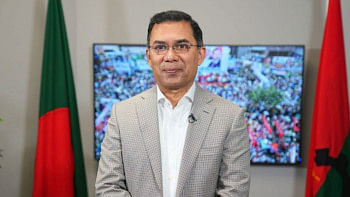Cash outside banks keeps rising

The volume of cash outside the banking sector of Bangladesh has been increasing since the start of the year due to persistent inflation, the loss of consumer confidence in the sector due to the presence of ailing lenders, and the prevailing situation following the recent political changeover.
During the July-August period of this year, cash outside banks rose by nearly 1 percent, or Tk 2,000 crore, to Tk 292,000 crore compared to the end of June, data from the Bangladesh Bank (BB) showed.
In July, the volume of money outside banks was Tk 291,000 crore, showing an uptick, the central bank data showed. August was the ninth consecutive month that currency outside banks grew.
During July-August this year, cash outside banks rose by nearly 1 percent, or Tk 2,000 crore, to Tk 292,000 crore compared to the end of June
BB data showed that money outside the banking sector began to decline after June 2023, standing at Tk 248,000 crore at the end of November.
However, this trend reversed in December of last year, a month before the national elections, and money outside banks continued to rise until August.
Between November 2023 to August this year, the volume of currency outside banks soared 17 percent or Tk 44,000 crore, according to the BB.
Bankers attributed persistent inflationary pressure and a deficit of trust among depositors in some banks as factors that contributed to the rise. Besides, the cash crunch at banks could also be responsible for the recent spike in cash among the public, they said.
Syed Mahbubur Rahman, managing director and chief executive officer of Mutual Trust Bank Limited (MTB), said the current situation stems primarily from a lack of overall public confidence.
Many individuals are struggling to withdraw money from ailing banks, leading to apprehension about the future, he said.
Rahman also noted the significant presence of black money in the economy complicates matters further, especially with governmental changes that hinder efforts to address it.
He also pointed out that people are increasingly spending more to manage their daily expenses.
"This trend of money going outside the banking system is alarming. This is why we aim to transition to a cashless society," Rahman said.
Central bank data showed that total deposits in banks declined by nearly 1 percent, or Tk 10,907 crore, to Tk 173,100 crore in the July-August period from the end of June.
Despite banks offering higher interest rates on deposits, bankers said many customers are still not interested in keeping money in banks given their concerns.
When a significant volume of cash remains outside the banking system, it affects the money supply, which is crucial for managing inflation and maintaining economic stability, they noted.
Anis A Khan, former managing director and former chairman of the Association of Bankers Bangladesh (ABB), said the volume of money outside banks fluctuates in response to the macroeconomic situation and political environment.
"We had seen such a trend during the Covid-19 pandemic, when people kept a lot of money in hand instead of depositing it in banks."
Amid the political unrest and uncertainty, fear regarding whether their accounts may be frozen has gripped people, Khan pointed out.
"Basically, those who are assuming assets illegally are interested in keeping money at home instead of banks because of fear," he said.
Another major reason is that people are losing trust in banks as some lenders are failing to repay depositors, the senior banker observed.
MTB's Rahman warned that the public holding excess cash would exacerbate the liquidity crisis at ailing banks, creating pressures that can drive up deposit costs and lending rates.
He stressed the importance of enhancing the credibility of the banking system and bridging the trust gap with the public to move forward.
Encouraging individuals to deposit money in banks is essential and reducing inflation will also play a crucial role in decreasing the amount of cash outside banks, he said.
"In the meantime, we must focus on building the banks' credibility and alleviating concerns about trust."


 For all latest news, follow The Daily Star's Google News channel.
For all latest news, follow The Daily Star's Google News channel. 





Comments